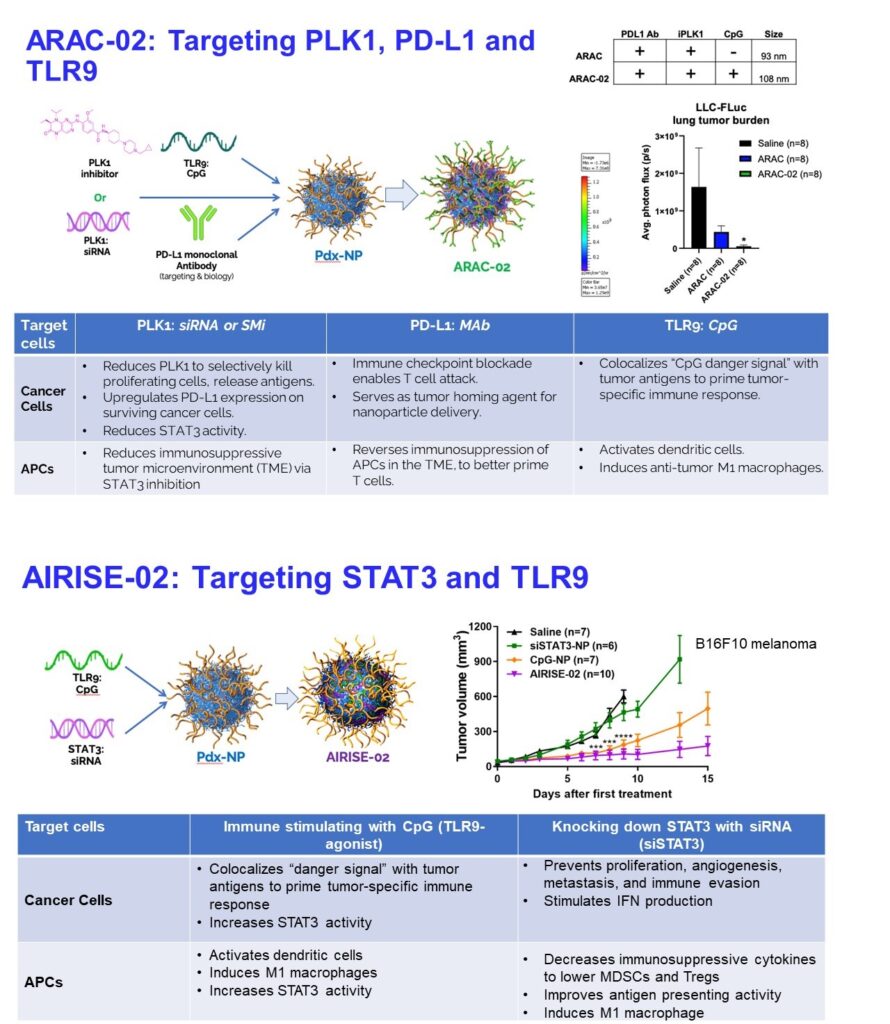Technology
Introducing PDX Pharma’s Technology
PLATFORM (Pdx-NP™)
Our proprietary Pdx-NPTM is innovative silica-based drug delivery technology that can load multiple cargo types at once (e.g., oligonucleotides, adjuvants, antibodies, chemotherapeutics, proteins) with superior outcomes than the free drug counterparts, creating a myriad of new intellectual properties. It can target both cancer and immune cells, generating cancer specific immune response. To date, we have over 50 patent applications pending examination and 8 US/EU patents issued, encompassing compositions and methods of use for our nanoparticle platform and novel combination therapeutics
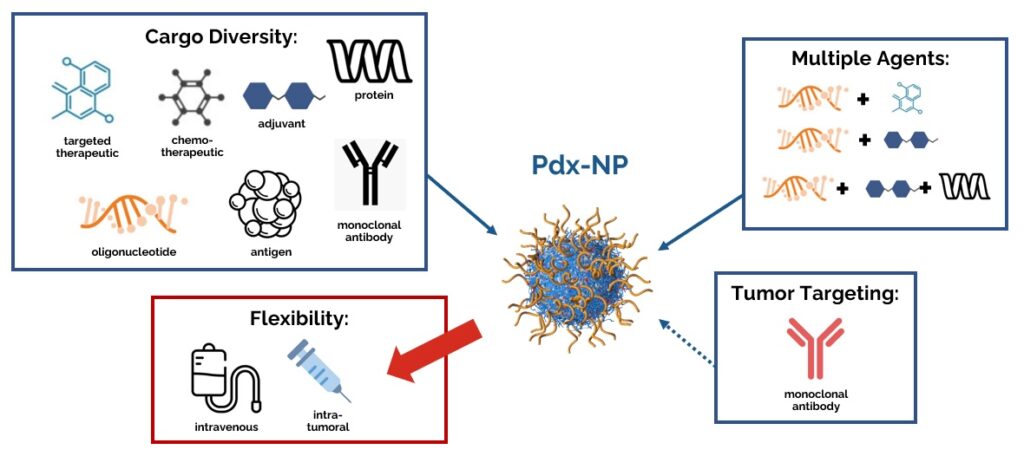
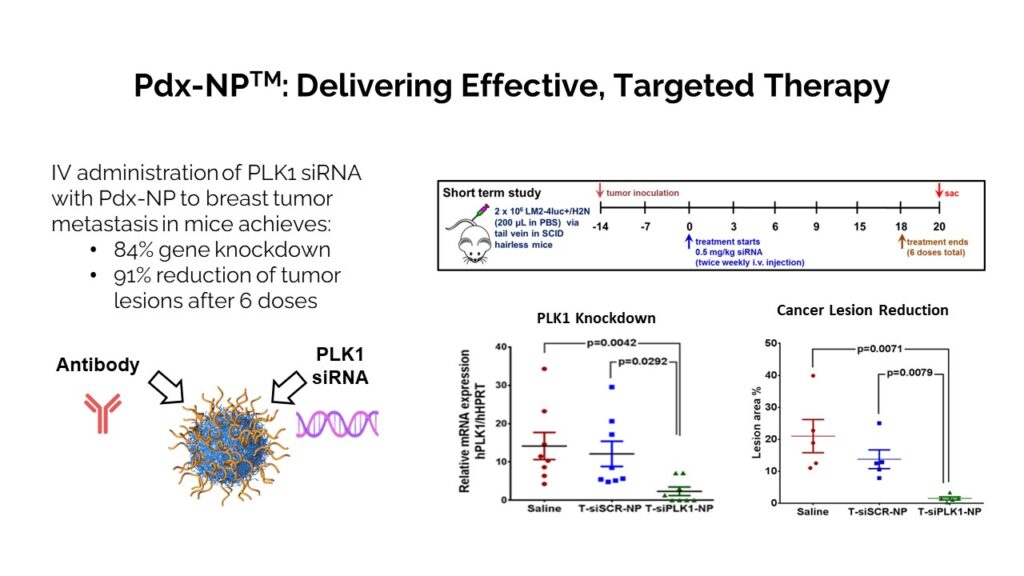
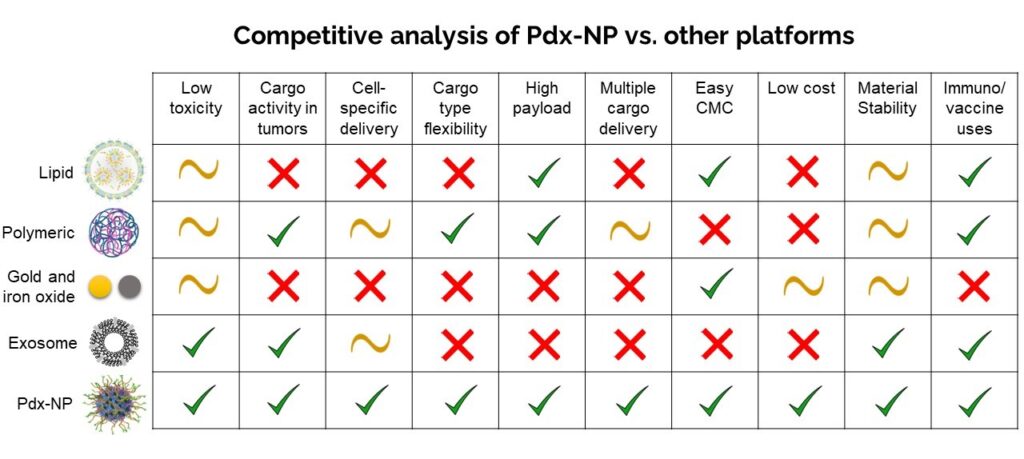
Pdx-NP™ HELPS REALIZE THE PROMISE OF AI-GUIDED DRUG DISCOVERY
AI is transforming drug discovery by rapidly identifying promising targets. However, many of these targets are not druggable, and lasting responses often require simultaneously modulating multiple pathways. The Pdx-NPTM platform can deliver multiple types of payloads to both cancer cells and the relevant immune cells, enabling the full potential of AI-guided drug discovery.
For targets that are not druggable with conventional drugs, Pdx-NPTM can deliver a cocktail of 3 siRNAs to inhibit 3 genes at once (Fig. A) or antisense (ASO) 10-fold more effectively than free ASO counterpart (Fig. B).
IMMUNOTHERAPEUTIC STRATEGY WITH ARAC™ AND AIRISE™
Our first two candidates, ARAC-02 and AIRISE-02, utilize patients’ own tumors to create cancer specific immune response (CD8+ T cells). They bypass the need to identify tumor antigens or engineer T cells outside the body (e.g., CAR T cells). They can kill cancer cells and generate a tumor specific T cell response while modulating the immunosuppressive tumor environment.
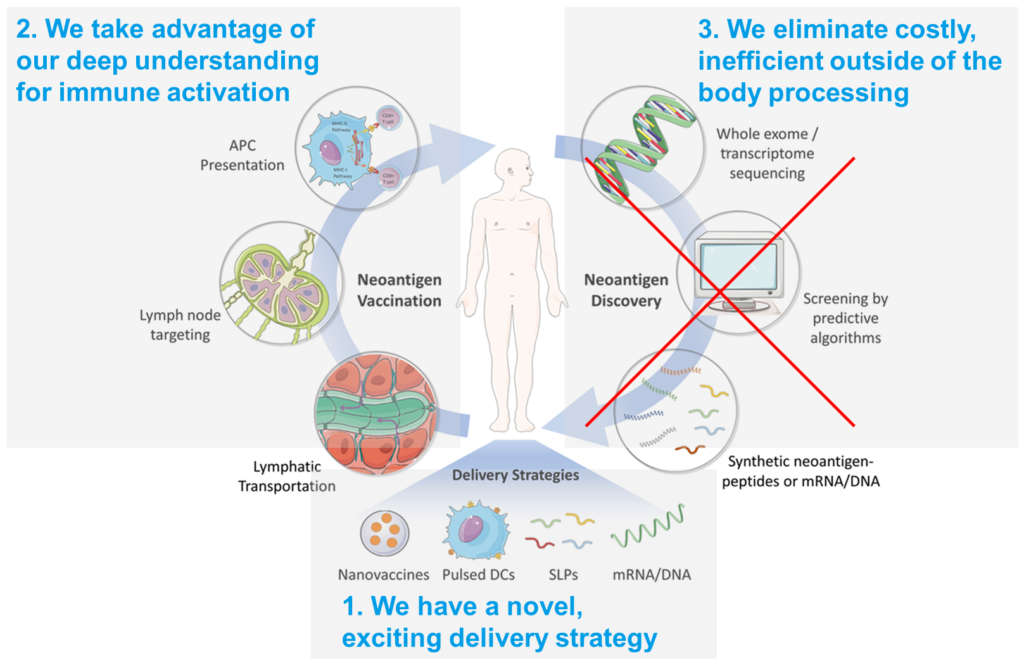
Targeting Innate & Adaptive Immune Responses with ARAC-02 And AIRISE-02
ARAC-02 development achieved the perfect score during SBIR grant review, and won $2.3M award from the NCI in 2021. Data on its first-gen ARAC was published in Nature Communications in 2022.
AIRISE-02 has been published in Advanced Materials and won $2.0M award from the National Cancer Institute (NCI) in 2021.
KEY COMPETITIVE ADVANTAGES OF OUR NANO IMMUNO-THERAPEUTICS




